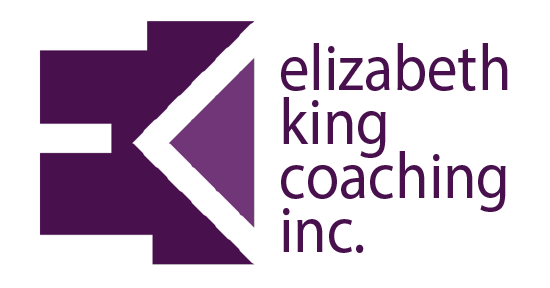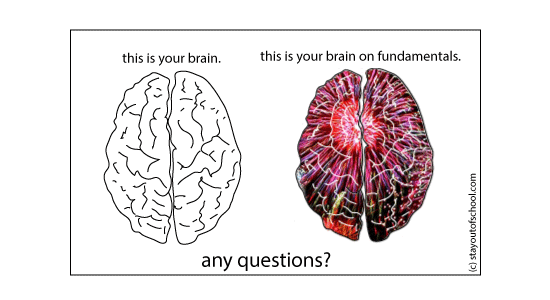Jazz and Fundamentals, Part 3: Improvisation
You’ve got to learn your instrument. Then, you practice, practice, practice. And then, when you finally get up there on the bandstand, forget all that and just wail. —Charlie Parker
It’s often suggested that, with the evolution of technology and accessibility of information, we don’t really need to memorize fundamentals anymore. Why not outsource them? Aren’t they Google-able, we think. And sure: if you know you need to look something up, this seems reasonable. Heck, Einstein famously looked things up. However, in suggesting that the new standard is to look up information rather than memorize it, we likely put our creative intelligence at a serious disadvantage.
How? If you haven’t internalized everything you need to think creatively—all the details that comprise the context in which you’re working—your creativity hinges on recognizing that your existing body of information is incomplete, researching the missing pieces, and then connecting them.
Let me reiterate (and I don’t mean to be ridiculous here), but, if you don’t thoroughly understand a fact or formula, you’re not very likely to think about, use it, or invent something related to it.
The Math Example: Direct Problem Solving
In Geometry there are a few triangles that are often referred to as “special triangles.” The length of a special triangle’s legs are always proportional to each other in a simple, easy to recognize way (just like a pattern for a shirt— same shape, but it comes in different sizes).
Without giving you a complete geometry lesson, let’s just say that if I give you a special triangle and the length of one of its sides, you should be able to easily find the lengths of the other two sides (provided you know that special triangle’s ratio of the lengths its the sides—the formula—and you’re handy with a proportion).
Now, the SAT folks are kind enough to provide these ratios at the beginning of every SAT test in a little reference section. Yes, they give the formula at the front of the test that, occasionally, provides a direct answer to a test question.So, shouldn’t we expect that every time one of these special triangle questions pops up, students should get it right? After all, the formula is right there. Right?
Wrong.
Students still get these questions wrong because they neglect to memorize the formula specifically because they know it’s given in the resources. By not memorizing formulas, students deprive themselves of the awareness of the need to use those formulas in more complex situations. Because the information isn’t stored internally, they don’t intuitively access and employ it.
What Does This Have to Do With Improvisation?
I want to get back to Charlie Parker, Winton Marsalis, and jazz musicians who excel at creativity and problem solving on-the-fly. In his advice for growing musicians, Parker recommends: “practice, practice, practice” and then “forget all that and just wail.” Forget??? How badly we’d like to believe that to “forget” could mean that all those boring fundamentals are intrinsically worthless; however, on the tail of “practice, practice, practice,” it couldn’t possibly be so. When Parker says “forget,” he means put the rules and parameters out of your direct consciousness.
“Practice, practice, practice” is creativity training.
Here’s an idea: the way to think outside the box is to know the box like the back of your hand. Now that you’ve examined every aspect of the box, you’re free to get out of it.
Fundamentals are not “because I said so” facts and figures; they’re the tools, the equipment, we need to get to the real stuff, the critical thinking and the creativity in any endeavor. When you hear a jazz musician riffing at a million miles an hour, he is absolutely improvising; he is not winging it. He’s giving his brain the freedom to be brave, to explore, unencumbered by the burden of needing to actively cogitate on those fundamentals. He knows his art so thoroughly that he has the discipline to toe the line, the freedom to confidently act outside preconceived parameters, and—most importantly—the wisdom to know when to do one or the other.
That's great improvisation.
Your subconscious can’t chew on something stored outside your brain. Without the most robust mental network of fundamentals, we compromise our creative intelligence. Lack of rigor begets neither creativity nor skill.




